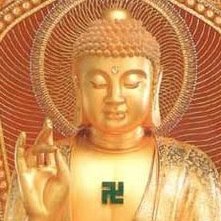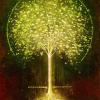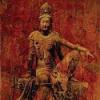Search the Community
Showing results for 'Dream'.
Found 7,591 results
-
Yes. Also somebody can sell some good MLM product that pays good. The thing is that there is no overnight success. Everything is time consuming. Lots of my friends are in MLM business, they had dream that they will work MLM next to their primary job but there is no time for that. MLM sounds great but still you have to advertise, to find connections, to pull the strings, go to conferences, etc. That is why I said it's better to get some diploma in some filed that is closely related to your primary interest, you will be more satisfied. And I would highly recommend work of Stephen Kraus. Brilliant man guy who wrote exceptional books. Helped me a lot.
-
Good luck with your mom, Barb. Sorry to hear what's going on - that's got to be painful. I've been listening lately to Sogyal Rinpoche's audio presentation of Tibetan Wisdom for Living and Dying. Beautiful stuff. Very much related to our discussion of Dzogchen. I really like how he emphasizes the value and importance of our simple presence when dealing with the dying (and living). I recently visited acquaintances in mourning for the death of their young daughter... I was quite apprehensive and emotional about visiting. I used the advice offered by Sogyal. I simply made myself available, rested to the best of my ability in basic conscious awareness. It was quite an experience and I'm very glad I went. As far as the book goes, "Reaching the definitive conclusion that all phenomena are inexpressible emptiness." It's very important to investigate what Tibetans mean when they use the word "emptiness." Emptiness is NOT empty. Rather, they tend to mean something more along the lines of formlessness, without border or distinction, undifferentiated, boundless, spacious and open, lacking boundary, and so forth. To call it empty would violate the inexpressible condition. I personally enjoy the American approach - Great Mystery. I had an insight a few years back out about it. It occurred to me that what we perceive as "real" and "solid" is nothing more than a consequence of our unique sensory apparatus which is specifically "tuned" to evoke our dream. What actually exists is a formless, boundless, space full of infinite potential - Great Mystery. Our sensory apparatus evokes from that our particular experience. And if that sensory equipment were to change, so would that experience. A rock is hard specifically because our skin is soft. Similarly, our sensory organs create the illusion of separation of us from other. The "space" which "separates" us from others and our surroundings is most certainly not "empty" - it's full of water vapor, gases, microorganisms, and who knows what else. And yet our senses of sight and touch, in particular, lend the perception of being surrounded by empty space as they are tuned to ignore what fills that space. But this whole perception of separateness is illusory. There is no self and other. Separate "me" from my atmosphere, my food source, solid ground, ... what happens? It doesn't work. The boundaries are imaginary. So what is, is not stuff and matter but rather an interaction between boundless spaciousness full of infinite potential and the clarity of presence or awareness (not perception) and vividness. Very hard to use words, hence "inexpressible emptiness." Talk to you soon.
-
You aren't getting it done, you are living with your parents, asking on an internet forum how to make enough money to pursue your dreams, if it were that easy we'd all be doing it. It isn't. You might get lucky and win the lottery, you might meet someone who is rich, you might get a dream job and enjoy the work, but if you wait till your parents die to figure it out you'll be thrown to the wolves in the real world and it's going to suck. Learn to live with being dirt poor or dedicate your life to a career, pick one and stick with it. As much as I wish this was a have your cake and eat it to situation it isn't.
-
The Sun Of Wisdom: Teachings on the Noble Nagarjuna's Fundamental Wisdom of the Middle Way by Khenpo Tsultrim Gyamtso haven't cracked it yet, just checked it out of a library yesterday The Way of the Bodhisattva (bodhicharyavatara) by Shantideva transl. by Padmakara Translation Group been reading this for a while.. a beautiful poem about the activities of a person on the bodhisattva's path. Not my favorite translation of it but i was just struck by this and wanted to quote: "likewise since it is a group of fingers a hand itself is not a single entity and so it is with fingers, made of joints and joints themselves consist of many parts these parts themselves will break down into atoms and atoms will divide according to direction these fragments too will also fall to nothing thus atoms are like empty space - they have no real existance all form therefore is like a dream and who will be attached to it, who thus investigates? the body, in this way, has no existence what is male, therefore, and what is female" i am always struck by how close the observations of the buddha and meditative mystics of that order are to the declarations of modern particle and quantum physics. Clarifying the Natural State: A Principle Guidance Manual for the Practice of Mahamudra by Dakpo Tashi Namgyal transl. by Erik Pema Kunsang (I guess its out of print now because i got my copy before they were $250.. yikes! only getting around to reading it now tho) dakpo tashi namgyal wrote the definitive book on mahamudra, called "Mahamudra: The Moonlight", an epic tome about how to sit and do nothing lol. This is a manual for practice geared less towards the philosophy and view of mahamudra and more towards how to actually sit and realize the natural state.
-
How so? Is it the kind of denigration when that British teacher named a Teddy bear Muhamad? Or is it at the level where a Buddha head is used as a doorstop? You seem to be suggesting some kind of a desecration of a holy artifact here. I am not aware that the Tao Te Ching has been appropriated by foreign cultures to become - like the Holy Bible - an object of worship outside China. Please be kind enough to explain how I have denigrated the Tao Te Ching in your eyes. Ok, then do it. By all means read it in any form you wish. All do allow me the same freedom, if you don't mind. Talk with us? Who is us? This is an open forum, isn't it? People from all over the planet come and go in the World Wide Web. I am not aware that I have intruded a private party of Taoist initiates. And what do you mean by talk with us? Is this some gangland code of conduct? The only rules I know when I came in is 1. No foul language and 2. No fighting. You had better clue me in on any additional restrictions. . I read some Chinese but not as good as Dawei or Mr Chi who helps me out. That's good to know. I don't understand why you keep saying I talk down other cultures, etc.. You may want to practise this western liberal value of equality and that is fine. But to impose that value on those like me who don't buy it just isn't fair unless it is a pre-condition for participating in your group. Like I said, if there are rules in this regard, spit it out and be transparent. I would never dream of walking into a muslim prayer hall without taking off my shoes or act like a bull in a china shop in this forum with no regard for sensitivities.
-
I would never dream of discriminating anyone. Of course you can discuss it. Anybody can and in anyway they see it. That was my point. But declaring this is off topic or that is off topic, as you had done, is designed to stifle any discussion that is not going your way. I was referring to anyone who doesn't have the mind of an ass. Is that too exclusive?
-
Talking about PART TWO; Revealing the Meaning of the Main Text as the Purpose of the Undertaking. The first major section, Reaching a decision through view, has four subsections. Mentioning the first one: A. Reaching the definitive conclusion that all phenomena are inexpressible emptiness. (pg. 189) 'Personal identity' is merely an impression; underlying the personal identity impression is the awareness of an underlying consciousness, the concept of "I". the "I" dwells nowhere in the body - that must be transcended. (I think again of your idea of the space between the thoughts). the other side of this is to reach a conclusion regarding the nonexistence of the identity of phenomena. To try and place labels on things; one can see the physical manifestation of a thing's properties, but it seems that the totality of any object is more of a 'verb' that is descriptive of function rather than anything that actually exists in perpetuity. To me, this goes hand in hand with the concept of there not really being any 'time' either. Because our brains are laid out to see in a linear fashion, we are actually looking at phenomena which is timeless - there is no before, during or after. It's all happening now, only we're watching a 3-d movie without 3-d glasses. In order to understand the nature of a phenomena, one must include the Idea for the phenomena, but without the time-interference; rather, as a totality of yesterday, today, and tomorrow. Somehow this Dream is laid out that we are placed at the intersection of the illusion of Time and Space Row row row your boat Gently down the stream, Merrily merrily merrily merrily Life is but a Dream (Steve - I'm going to Calif. for a week to move my mom into the dementia ward at her assisted living place. I probably won't be online for a while - talk to you when I get back).
-
For purposes of ... wild speculation There are some interesting aspects to Fascism that I believe would be beneficial to our current situation.. Particularly the concept of Autarky... Thoughts? Is there a way we can expand / develop these ideas? Into a 21st c working model or use it to develop a new system of governance? I was thinking of starting another thread - "Create Your Dream Government" or something haha... and have forum members develop/ experiment / play with a potential new system of governance. But I wanted to cause a little (more) commotion haha ////// Fascism was influenced by Saint-Simonian utopian socialism that accepted private property and had criticized the legacy of the French Revolution that fascism also has done.[11] Fascism advocates a state-controlled and regulated mixed economy; the principal economic goal of fascism is to achieve autarky to secure national self-sufficiency and independence, through protectionist and interventionist economic policies.[10] It promotes regulated private enterprise and private property contingent whenever beneficial to the nation and state enterprise and state property whenever necessary to protect its interests.[10] Autarky is the quality of being self-sufficient. Usually the term is applied to political states or their economic systems. The latter are called closed economies.[1] Autarky exists whenever an entity can survive or continue its activities without external assistance or international trade. Autarky is not necessarily economic. For example, a military autarky would be a state that could defend itself without help from another country. Autarky can be said to be the policy of a state or other entity when it seeks to be self-sufficient as a whole, but also can be limited to a narrow field such as possession of a key raw material. Etymology The word "autarky" is from the Greek: aὐτάρκειa, which means "self-sufficiency" (derived from aὐτο-, "self," and ἀρκέω, "to suffice"). The term is sometimes confused with autocracy (Greek: aὐτoκρaτίa/aὐτaρχίa "government by single absolute ruler") or autarchy. Libertarian theorist Robert LeFevre used "autarchy" and "autarchism" in the sense of self-government to describe his own political philosophy and to distinguish it from anarchism. The symbolism of the fasces suggested strength through unity: a single rod is easily broken, while the bundle is difficult to break. There is a scholarly consensus that fascism was influenced by both left and right, conservative and anti-conservative, national and supranational, rational and anti-rational.[35] A number of historians have regarded fascism either as a revolutionary centrist doctrine, as a doctrine which mixes philosophies of the left and the right, or as both of those things.[36][37] Fascism was founded during World War I by Italian national syndicalists who combined left-wing and right-wing political views. Fascism as a form of tyranny One of the most common and strongest criticisms of fascism, is that it is a tyranny in practice.[220] Fascism is commonly regarded as deliberately and entirely non-democratic and anti-democratic.[221][222][223] Scholar on democracy, Anthony Arblaster has recorded fascists' policy claim about the ideology supporting a form of democracy, but Arblaster regards the claim as a deliberate lie and empty rhetoric, claiming that fascism never intended to put such claims of democracy into practice, and thus he categorizes fascism as non-democratic and anti-democratic in practice.[224] However there have been scholars who have rebuked this common critical view. Scholar on fascism Walter Laqueur says that fascists "would not necessarily accept the label of 'anti-democratic'. In fact many of them argued that they were fighting for a purer and more genuine democracy in which the participation of the individual in politics would not be mediated by professional politicians, clerical influences, the availability of the mass media, but through personal, almost full time involvement in a political movement and through identification with the leader who would represent the feelings and sentiments of the whole people."[225] http://en.wikipedia.org/wiki/Fascism
-

meditation - not contriving the breath
Tibetan_Ice replied to konchog uma's topic in General Discussion
Hi Aaron There you go again. Imposing your views on others. You just have no idea do you? Radical lessez faire. Just let go of everything and that will take you there. To emptiness. Well, you are wrong. You did not ever perceive emptiness, nor do you even know how to get there. Your practice, what you've described will lead you straight into the substrate consciousness where you will stagnate, fall into laxity and dullness, mistake it for emptiness and think you've accomplished something. You've accomplished nothing. The acid test is like Alan Wallace says. The experience is authentic if it liberates. No liberation? No awakening. If you took a moment to read the many buddhist books that are out there, you know the ones I'm talking about.. the ones with maps. But then, you wouldn't know that. You think maps are bad. Well radical rationalism will get you nowhere. Entropy is your elixir. It all falls apart. There is a reason why people follow teachings and maps. It is because some people have learned certain methods and ways based on their experiences, and they have the capacity and intention to convey that knowledge to others. We should be grateful that other people have written maps. Knowledge is a benefit, not a detriment as you so foolishly have been supporting in your radical posts. A silent mind state is not emptiness, it is not awakening, nor is it anything useful. As a matter of fact, it is regarded by most Buddhists as intellectually damaging. It makes you stupid. You are a prisoner of your radical belief system. Why don't you try letting go of that for a change and follow somebody else's map? You know, the Buddhists who become rainbow bodies. The ones that draw pictures of cows on the wall and then milk them, producing real milk. The ones who have realized true emptiness. I have seen other posts of yours where you declare that you have realized emptiness. I do not believe you. I'm sure others here don't either. From a few of your posts I would say that you don't even believe yourself. But, if you believe that sitting in silence is emptiness, then perhaps you have realized silence. But that is not emptiness. Had you realized emptiness, you could walk though walls, you could turn into a rainbow body at will. You could manifest forms at will. You could tell me what I look like. You would know your previous lives. After all, life is only a dream. It's all space and light, smoke and mirrors. Instead of trying to spread your brand of enlightment, your erroneous methodology, your bad advice, why don't you learn about the proper progression of events that occur during breath meditation? If you had proper breath meditation techniques, you would have learned that by calming the mind, the breathing slows, the mind calms even more and then the breath seems almost nonexistant. It lets go all by itself without any conscious effort of letting go. At that point, you switch from the 'learning sign' -nimitta to the counterpoint sign (which may look like a star, a sun, a ball of light). After you gain stability in that, the counterpoint sign engulfs you and your coarse mind dissolves into the substrate consciousness. The substrate consciousness is that which continues from life to life. The substrate consciousness is the alaya. That is the silent state that you are trying to teach everyone to remain in. But it is not so silent. It's not even not the final goal. If you stay in the alaya too long, your awareness will degrade and morph into dullness and laxity. Beyond the substrate is Primordial Awareness. The realization of that is the realization of emptiness.. The proper procedure is not to "let the conscious thought of breathing go" as you suggest. The proper procedure is to cultivate attention on the breath, and sustain it. Vitakka and Vicara. It is not a letting go. The letting go, the dissolution will occur if you follow the proper steps. And when you say "eventually you can begin your meditation without having to focus on anything, but simply entering a silent-mind state." this is not a goal, it is not a good thing. You've trained yourself to sit in dullness and laxity, probably stilted your intelligence and cut short your spiritual development. Now, I'm not going to educate you as to the proper Buddhist breathing meditaiton techinques. But I will say this. Silence is not a goal as it pertains to "no thoughts". Part of what you will discover as your progress in proper techinique is clarity, vividness of thoughts. Absence of thoughts is not a goal as there are always thoughts, or forms. But when the center of your awareness becomes very clear and you can see each thought, clear and separate, dissolve into the luminous space, you are getting closer. You know, nobody ever got entlightened by your method, just letting go. Letting go is a form of aversion. Sustained mindfulness is the key. Sustained awareness. Neither averting nor grasping. It requires relaxation and sustained attention. 24/7. That is the goal. That is what most all teachings teach. I suggest you look into it. Your "Silent Mind Meditation" is bad advice and you should seriously consider the effects of what you write on others. Or if you insist on pushing your brand of spiritualism, then maybe instead of copping out and avoiding revealing your wisdom from realizing emptiness as you continually do, you could tell the rest of us about the fruits of your brand of practice so that we may assess the validity of your claims, especially the realization of what you call "emptiness". (Actually, I'm not all that interested in hearing about it anyway because I've seen the fruits of your practice in most of your posts.). Good luck in your journey. I think you'll need it. TI For anyone else who is interested in learning proper breath meditation I would suggest reading Shaila Catherine, Ajahn Brahm, Alan Wallace, Dudjom Lingpa, anything on Dzogchen preliminary practices or any other of the serious Buddhists with maps to follow. -

The pursuit of happiness is the road to hell...
i am replied to eye_of_the_storm's topic in General Discussion
I completely agree that it depends on how you define happiness. I, as has already been stated, couldn't be happy causing others pain. Happiness for me...is a moving target, I'll admit, I'm still getting my shit figured out, but I'm on the right track. It involves getting what I want out of life without harming the planet and life on it any more than necessary, helping others to some extent, and feeling content with what I'm doing with myself. This involves something other than sitting in an office, only interacting with real people, nature and life in a second hand way. It involves a good social life with good friends, even if I don't see them more than once or twice a week (or maybe less...). And I don't mean fun drinking friends who will go out and be assholes with me and chase girls. I mean good people; good friends. That along with a practice in which I feel I'm getting somewhere, accomplishing something. I could probably sit here and think of more, but that's the gist of it. It does not involve the American Dream, aka three-car garage, boat, camper, wife and 2.5 kids (though those first few are not inherently bad), high powered high paying yet soulless job, expensive clothes, fancy restaurants, people I pay to do the stuff for me which I think I'm above, etc. etc. All the ego-centric bullshit that I'm assuming (dangerous, I know!) is what you had in mind with this thread. -

Lucid Dreaming- Dream affirmations and meditations
Immortal4life posted a topic in General Discussion
Lucid dreaming and dream interpretation is a part of many of the spiritual traditions of the past and is mentioned in many of the world religions. A good meditation and statement of realization/affirmation/mantra/whatever you do, to do at night before bed is to silently affirm to yourself, "I remember my dreams and am conscious while dreaming." It is also more healthy to gradually drift into sleep, than to pass out immediately. Another one to do in the daytime is, "My concentration is becoming perfect." And, "My concentration is perfect." Do not phrase an affirmation like "I will remember my dreams tonight", because your mind will then think that it is something that always will happen in the future, but not now in the present time, which is what time it always is. To mentally realize the statement to yourself is also more powerful than repeating a mantra over and over. You should also get in the habit of writing down your dreams when you wake up if you can, anything you can remember, even if it's just fragments or bits, immediately upon waking up. After several weeks or months you can look over the info over time and see if there are any patterns or recurring themes Here is a cool article about dreams and their meaning according to the readings of Edgar Cayce Edgar Cayce on dreams The Edgar Cayce Dream Dictionary. This page explains what the symbolic meaning of something in a dream is- Edgar Cayce Readings Dream Dictionary- 3 replies
-
- 1
-

-
- Lucid Dreams
- Meditations
- (and 7 more)
-
haha I guess so Well I guess to some degree it does depend on ones own taste/emotional reaction to certain music but I will tell you what I have/am also planning to put on my mp3 player. Lion King- Circle of life, he lives in you, Can you feel the love tonight Pocahontas- Colours of the wind Tarzan- Youll be in my heart Xavier Rudd- Come let go, Let me be, Didgeridoo Jamming (plan to put others on) Ash Dargan- Shiva Aphex twin- didgeridoo, pulsewidth, heliospan Shpongle- DMT (plan to put others on) Midnite- Foolish and the Wise, Bushman (plan to put others on) Lee scratch perry- I am a madman, Rain night dub (maybe put others on) Tibetan/Buddhist Mantra Chanting (maybe put others on) Sufi music- Tree of patience, Dream of the dreams (maybe put others on) Native American- Sundance (maybe put others on) Dennis Brown and Gregory Isaacs- Raggamuffin Tenor Saw- Ring the Alarm Barrington Levi (under mi sensei) Plan to put some more reggae on Djembe music- Le tambours de burundi black, zimbabwe/botswana music,senegal day, djembe Feng Shui Music, Bamboo chinese flute. Plan to put mozart etc, maybe some santana-transcendence, europa, moonflower. My own rule is how it makes me feel even so called music that should be good eg native american music sometimes makes me feel sad, I dont know the logical reason, maybe past life or something lol or maybe they are crying about something, also I try to put music that is based on joy, love, peace, appreciation, playfulness, harmony, not really into stuff about changing the world TOO MUCH... Live music is best, second best speakers, then good headphones, then cheap headphones, also if you live somewhere hot good to do barefoot..maybe natural clothes.
-
name='sree' timestamp='1357062985' post='389175'] "Ok, you more or less see Lennon’s goal the same way as Marblehead: it works only for the individual because there are too many people doing their own things. Granted, forcing others to do your thing is not your Way (道 i.e.Tao). Well, I don’t think that is the Way of the Tao Te Ching either. What about a society of one, namely, you? Think about it. You said Lennon’s goal is realistic for an individual. Is this a half-assed belief or did you examine Lennon’s manifesto seriously and came up with the realization that it is not a silly ditty by a pot-head but practicable and actionable wisdom? Is John Lennon's dream practicable and consistent with the teaching of the Tao Te Ching?" You ask a lot of questions. Is John Lennons dream practical? No, if you give up your possessions right now. You'd have problems, so would I. I like my stuff. Thinking everyone else will give up theres is to coin your phrase pot headed. Governments have tried it, it usually ends as an economic and moral disaster. Is his song consistent w/ Tao Te Ching.. Uh, ones a deep philosophy hitting dozens of areas, the other is a short ditty ode to communism, they're in such different realms its hard to say. Do you learn about the TTC from the song? Not really, so I'd say no. Did he believe it? Obviously not, since he didn't do it or live by it. I like Lennon. Strangely I read a book decades ago about hippies living on the rumor that Lennon was going to buy an island and found a utopia. They believed it, didn't happen. Old book, Season of the Witch maybe.
-
I definitely think you're heading in the right direction with that interpretation. I think that there is a point at which some people have a moment of complete lucidity. I also think that it can manifest differently, based on that person's conditioning. The truth itself is always that same but the way we then interpret that, narrate it to ourselves, and others, and so on, colors it. I also think there are varying degrees of depth and breadth of insight, application, and the degree to which we honor it in our daily lives. And different traditions refer to it in different ways but the truth is beyond any specific expression of it. But at some point there does appear to be a before and after... before I was dreaming, now I am awake. And so there does seem to be an instantaneous shift. There certainly was for me, and it certainly has lingered, informed, and affected my life profoundly. An interesting question is - to what degree is that influenced by what we do? Whether that is meditation or any other activity or conceptualization. Then we can get into the discussion of whether meditation is an activity, what is the motivation associated with it, and all of that. As Krishnamurti says - truth is a pathless land... And as Fenner says - if I didn't do what I didn't need to do, I wouldn't know that I didn't need to do it in the first place. And yes, I agree with you about looking at this as a short path. I don't consider myself an authority in the Buddhist traditions, so everything I say, to some degree, should be suspect. I think most people using the terms "short path" are referring to a 'method' by which we get somewhere or do something or change something in time. But that can never work because what is there to change and who is there to change it? But certainly there is change in our relative experience and it is spontaneous. Nang jang (refinement of perception) is the other name given to the book and it is often referred to as a tool used to cut through (trek-cho). I think that this cutting through refers to making that incremental but profound shift of awareness, cutting through the dream, the mitote, and aiming at the space between thoughts - between what was and what will be; but nang jang equally destroys the concept of having to do anything or become something, or change anything to achieve that. It always already is. Great idea for a project, Barb.
-
The title of the book, Buddahood without Meditation, I assume is referring to the vajra aspect of transcending the physical aspect of understanding....is he referring to the phenomena where the enlightenment is instantaneous and not as a partial result of the clearing-the-mind skills obtained by years of meditation? Is this what you got from it? Referring to pg. xxiii of the Introduction, this would seem to be the case. He writes: The most special approach, the most secret of secret paths, is the swift path of utter lucidity, the vajra pinnacle. Untainted by considerations of good or bad, timeless awareness is the naked union of awareness and emptiness, atemporal in its original purity. This is the inherently and fundamentally unconditioned natue of mind itself, the enlightened intent of kuntuzangzo, free of elaboration. This secret key point of view became completely evident to Dudjom Lingpa. I'm not greatly attuned to the Buddhist structure, but certainly this corresponds with being in step with the Tao; untainted by considerations of good or bad, timeless. This writing seems to be the result of a great experience the author had with a vision, a dream, an encounter with immortals. When people speak of the "short path" on the forums, do you think this is the phenomena they speak of? An instantaneous awareness of utter lucidity that remains with us? I look forward to hearing your thoughts, Steve...
-
I guess someone needs to write on this subject. Perhaps I will. Folks need to learn how to clean up after themselves., I must confess... It is very hard, especially at this time of the year, for me right now. In the middle of reprogramming my mind which has been programmed by years of what I called "realist" thinking. Realist, HAH! The assumption that something will be some way simply because it has been before is perhaps the biggest assumption we humans collectively make! No realism is simply "justified" pessimism, and the so-called justifications used for it are based on past events, which no longer exist. Something Wayne Dyer said I keep coming back to... Your body, right now, is not the body you had when you were a child. Not one cell of that original body remains. So even our bodies are not real. The past is gone, and everything that happened then has no bearing on what happens now unless we create that reality. Anyway to stop beating around the bush... I was tempted today to play that video I made. Listen to the music I listened to then. Essentially risk re-connecting with my tulpa. It is almost unbearably hard to resist. I'm clinging to the reality I have created for myself, my ultimate reality, my dream, where I have a wife, children, house and a way to support us all. I try to hold on to that picture in my mind. I try to feel what it is like in this reality I have created. But it is incredibly difficult. After too brief moments visiting this reality I come back here, where it has not manifested yet. I am alone again. I have to admit I am tired of being alone. Even though I am not alone (reprogramming.) I have a family, they just haven't manifested yet. ARG! - DreamBliss
-
Let's discuss our way of life, according to our values and our attitudes, to find out how far off the mark we are in relation to the eternal Way (道 i.e.Tao). John Lennon's Way (道) of Living, as told in his song "Imagine" would be as follows: No Heaven, no Hell, and above us only sky. (Meaning no religion, shamanism, spiritualism.) All the people (百姓) living together for today. (No dwelling on the past, no planning for the future.) No countries. (No nationalism, no territorial divisions.) Nothing to live or die for. (No conflicts, no dreams and no wants.) No possessions. (Public or private.) Lennon said that his Way (道 i.e.Tao) will lead to: No need for greed and hunger. All the people, sharing all the world, living life in peace. Is John Lennon's dream practicable and consistent with the teaching of the Tao Te Ching?
-
As I don't know how to initiate this, would you be kind enough to launch a new thread entitled "The Way (道 i.e.Tao) of Living"? To start off the discussion, you can cut and paste on the new thread site the following: Let's discuss our way of life, according to our values and our attitudes, to find out how far off the mark we are in relation to the eternal Way (道 i.e.Tao). John Lennon's Way (道) of Living, as told in his song "Imagine" would be as follows: No Heaven, no Hell, and above us only sky. (Meaning no religion, shamanism, spiritualism.) All the people (百姓) living together for today. (No dwelling on the past, no planning for the future.) No countries. (No nationalism, no territorial divisions.) Nothing to live or die for. (No conflicts, no dreams and no wants.) No possessions. (Public or private.) Lennon said that his Way (道 i.e.Tao) will lead to: No need for greed and hunger. All the people, sharing all the world, living life in peace. Is John Lennon's dream practicable and consistent with the teaching of the Tao Te Ching?
-
Fanatics have their dreams, wherewith they weave A paradise for a sect; the savage too From forth the loftiest fashion of his sleep Guesses at Heaven; pity these have not Trac'd upon vellum or wild Indian leaf The shadows of melodious utterance. But bare of laurel they live, dream, and die; For Poesy alone can tell her dreams, With the fine spell of words alone can save Imagination from the sable charm And dumb enchantment. Who alive can say, 'Thou art no Poet may'st not tell thy dreams?' Since every man whose soul is not a clod Hath visions, and would speak, if he had loved And been well nurtured in his mother tongue. Whether the dream now purpos'd to rehearse Be poet's or fanatic's will be known When this warm scribe my hand is in the grave. John Keats.
-
I did about 6 months of recapitulation, I even made myself a box to sit in to do it, god knows what my family must have thought of me at that time. I can't say it particularly cleared my personal history, but I think most energy work will more or less do the same thing as you become mindful and a little more detached you bring old reactions and energies into the present which clears your past. On a basic level working with the Tonal and Nagual I consider it pretty much the same thing as working with your masculine/feminine sides, working with the right and left brain, logical/artistic. Tonal can be worked on in your outer day to day life of work and relationships, while Nagual can can be worked with through dreams, visions, connecting with your intuition. There are plenty of dream yoga type practices available these days
-
Conspiricies ... the first thing to know about them is that not everything is a conspiricy. Simple greed and incompetance compose most of what is thought to be a conspiricy. If non-powerful people can conspire and do better, the powerful could certainly do far better still. This I do not see too much evidence of. The second thing is that there is not one, great conspiricy; there are a multitude of conspiricies .. people enter into them all the time, both low and high. Persons and institutions do form alliances from differing conspiracies, but this is not a unity of purpose; lust for wealth and coveting power lead this type to reach for more. Thirdly, there are individuals of a certain ideological bend who would like to establish a world government - conquering the world has been a fond dream for many for as long as there have been dreamers. The character flaw inherent in the type may allow them to collaborate briefly, but since the desires of their hearts are based in selfish pursuit, they will never hold together for long. Building a tower to reach the heavens requires steel and stone, not sand and rotted wood. Finally, when standing beside the switch, the current in the lines desperately wants to complete the circuit, to flow through the filament and bring illumination. By closing the circuit, one does indeed 'let' there be light.
-
You're parroting your same old beliefs. I fully agree however,...that Spoilers like yourself saying someone is parroting is a personal truth of yours. C&P is only parroting in your dream perception. For those interested in the subject, that is, non-Spoilers, quotes bring a broader view from other sources that may have spent a lifetime observing something. Those like yourself and CowTow, are pretty much lost causes living in an illusory sentient dream world,...delaring how your empirical knowledge is superior to everyone else,...getting upset if anyone wishes to go beyond the sciential mind. Delusion likes company. Actually, at one time, considered your veils much thinner than CowTow's. Yet you continue to refuse refuge in any possible truth. That is how folks like yourself may eventually uncover truth, by looking at such as a possibility,...at which point. you reduce everything,...squeeze out the fiction so-to-say,...until you arrive at something that is true. In Buddhism, which yourself and CowTow understand little about, beyond what you were indoctrinated to believe, is a process of prajnaparamita, or perfection of prajna. Prajna has nothing to do with the accumulated knowledge you enjoy flaunting,...it doesn't arise from the 6 senses. I fully understanding why it doesn't arise from the 6 senses, however, enjoying quoting others, like the Eight foremost Bodhisattvas, to accentuate the discussion,...only to it ridiculed as parroting,...a truth suppressing tactic of sentient beings. I've been to Ixtlan many times,...sat in the plaza looking at auras. Never met Don Juan, but connected with others interested in truth realization. Didn't set out to spend time in Ixtlan,...it was merely the half-way point between my home in Playa los Meurtes and the great shopping at Guadalajara. The book was OK,...frankly, I found the Art of Dreaming the most rewarding,...of course, the other books needed to be grasped first. No surprise about your familiarity with the Casteneda books,...as a whole I don't recall the word love ever being mentioned. I am puzzled by your comments on Don Miguell Ruiz,...especially cultivating impeccability. I've seen no impeccability in your recent attacks on me, in now three different treads. Although I did observe much fear and suffering, and an attempt to suppress the dialogue,...instead of pursuing any semblance of impeccability.
-
Is this like trauma release stuff. EFT matrix reimprinting, Yuen method, the healing codes, dream yoga too... Im not sure how relevant this is...sometimes I think its amazing, sometimes I think it adds to the ego..If im being honest.
-
If you choose option 2 you can spend your sleepy time mastering dream yoga And with obscene wealth you can make pretty good use out of two hours a day. Though I doubt that obscenely wealthy people adhere to a strict 24 hour day. I didn't even do that in college, between pulling all nighters and crashing and then wanting to go hang out with friends and then go to class and then another all nighter to another crash... But yeah, even assuming a 24 hour cycle I think it'd be doable.
-
http://www.garchen.net/resources/37practicesBooklet.pdf 4. Long-associated companions will part from each other. Wealth and possessions obtained with effort will be left behind. Consciousness, the guest, will cast aside the guest-house of the body. Letting go of this life is the Bodhisattvas’ practice. 5. When evil companions are associated with, the three poisons increase, the activities of listening, pondering and meditation decline, and love and compassion are extinguished. Abandoning evil companions is the Bodhisattvas’ practice. 6. When sublime spiritual friends are relied upon, one’s faults are exhausted and one’s qualities increase like the waxing moon. Holding sublime spiritual friends even more dear than one’s own body is the Bodhisattvas’ practice. 7. What worldly gods, themselves also bound in the prison of cyclic existence, are able to protect others? Therefore, when refuge is sought, taking refuge in the undeceiving Triple Gem is the Bodhisattvas’ practice. 8. The Subduer said that all the unbearable suffering of the three lower realms is the fruition of wrongdoing. Therefore, never committing negative deeds, even at peril to one’s life, is the Bodhisattvas’ practice. 9. The pleasure of the three realms is as fleeting as a dewdrop on the tip of a blade of grass, vanishing in a single moment. Striving for the supreme state of never-changing liberation is the Bodhisattvas’ practice. 10. When mothers who have been kind to one since beginningless time are suffering, what’s the use of one’s own happiness? Therefore, generating the mind of enlightenment in order to liberate limitless sentient beings is the Bodhisattvas’ practice. 11. All suffering without exception comes from wishing for one’s own happiness. The perfect Buddhas arise from the altruistic mind. Therefore, completely exchanging one’s own happiness for the suffering of others is the Bodhisattvas’ practice. 12. Even if others, influenced by great desire, steal all one’s wealth or have it stolen , dedicating to them one’s body, possessions and virtues accumulated in the three times is the Bodhisattvas’ practice. 13. Even if others try to cut off one’s head when one is utterly blameless, taking upon oneself all their negative deeds by the power of compassion is the Bodhisattvas’ practice. 14. Even if someone broadcasts throughout the billion worlds all sorts of offensive remarks about one, speaking in turn of that person’s qualities with a loving mind is the Bodhisattvas’ practice. 15. Even if, in the midst of a public gathering, someone exposes faults and speaks ill of one, humbly paying homage to and perceiving that person as a spiritual friend, is the Bodhisattvas’ practice. 16. Even if someone for whom one has cared as lovingly as one’s own child regards one as an enemy, to cherish that person as dearly as a mother does an ailing child is the Bodhisattvas’ practice. 17. Even if, influenced by pride, an equal or inferior person treats one with contempt, respectfully placing that person like a guru at the crown of one’s head is the Bodhisattvas’ practice. 18. Though one may have an impoverished life, always be disparaged by others, afflicted by dangerous illness and evil spirits, to be without discouragement and to take upon oneself all the misdeeds and suffering of beings is the Bodhisattvas’ practice. 19. Though one may be famous and revered by many people or gain wealth like that of Vaishravana, having realized that worldly fortune is without essence, to be unconceited is the Bodhisattvas’ practice. 20. If outer foes are destroyed while not subduing the enemy of one’s own hatred, enemies will only increase. Therefore, subduing one’s own mind with the army of love and compassion is the Bodhisattvas’ practice. 21. Indulging sense pleasures is like drinking salt water --- however much one indulges, thirst and craving only increase. Immediately abandoning whatever things give rise to clinging and attachment is the Bodhisattvas’ practice. 22. Appearances are one’s own mind. From the beginning, mind’s nature is free from the extremes of elaboration. Knowing this, not to engage the mind in subject-object duality is the Bodhisattvas’ practice. 23. When encountering pleasing sense objects, though they appear beautiful like a rainbow in summer time, not to regard them as real and to abandon clinging attachment is the Bodhisattvas’ practice. 24. Diverse sufferings are like the death of a child in a dream. By apprehending illusory appearances as real, one becomes weary. Therefore, when encountering disagreeable circumstances, viewing them as illusory is the Bodhisattvas’ practice. 25. If it is necessary to give away even one’s body while aspiring to enlightenment, what need is there to mention external objects? Therefore, practicing generosity without hope of reciprocation or positive karmic results is the Bodhisattvas’ practice. 26. If, lacking ethical conduct, one fails to achieve one’s own purpose, the wish to accomplish others’ purpose is laughable. Therefore, guarding ethics devoid of aspirations for worldly existence is the Bodhisattvas’ practice. 27. To Budhisattvas who desire the pleasures of virtue, all those who do harm are like a precious treasure. Therefore, cultivating patience devoid of hostility is the Bodhisattvas’ practice. 28. Even hearers and solitary realizers, who accomplish only their own welfare, strive as if putting out a fire on their heads. Seeing this, taking up diligent effort – the source of good qualities – for the sake of all beings is the Bodhisattvas’ practice. 29. Having understood that disturbing emotions are destroyed by insight possessed with tranquil abiding, to cultivate meditative concentration which perfectly transcends the four formless absorptions is the Bodhisattvas’ practice. 30. If one lacks wisdom, it is impossible to attain perfect enlightenment through the other five perfections. Thus, cultivating skillful means with the wisdom that does not discriminate among the three spheres is the Bodhisattvas’ practice. 31. If, having merely the appearance of a practitioner, one does not investigate one’s own mistakes, it is possible to act contrary to the Dharma. Therefore, constantly examining one’s own errors and abandoning them is the Bodhisattvas’ practice. 32. If, influenced by disturbing emotions, one points out another Bodhisattva’s faults, oneself is diminished. Therefore, not speaking about the faults of those who have entered the Great Vehicle is the Bodhisattvas’ practice. 33. Because the influence of gain and respect causes quarreling and the decline of the activities of listening, pondering and meditation, to abandon attachment to the households of friends, relations and benefactors is the Bodhisattvas’ practice. 34. Because harsh words disturb others’ minds and cause the Bodhisattva’s conduct to deteriorate, abandoning harsh speech which is unpleasant to others is the Bodhisattvas’ practice. 35. When disturbing emotions are habituated, it is difficult to overcome them with antidotes. By arming oneself with the antidotal weapon of mindfulness, to destroy disturbing emotions such as desire the moment they first arise is the Bodhisattvas’ practice. 36. In brief, whatever conduct one engages in, one should ask, ”What is the state of my mind?” Accomplishing others’ purpose through constantly maintaining mindfulness and awareness is the Bodhisattvas’ practice. 37. In order to clear away the suffering of limitless beings, through the wisdom realizing the purity of the three spheres, to dedicate the virtue attained by making such effort for enlightenment is the Bodhisattvas’ practice.















